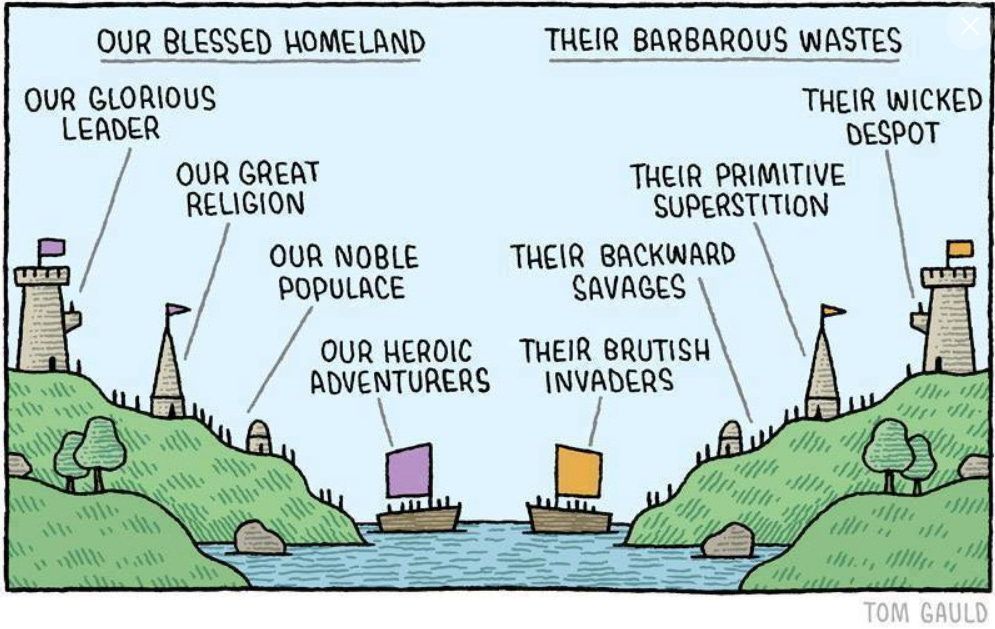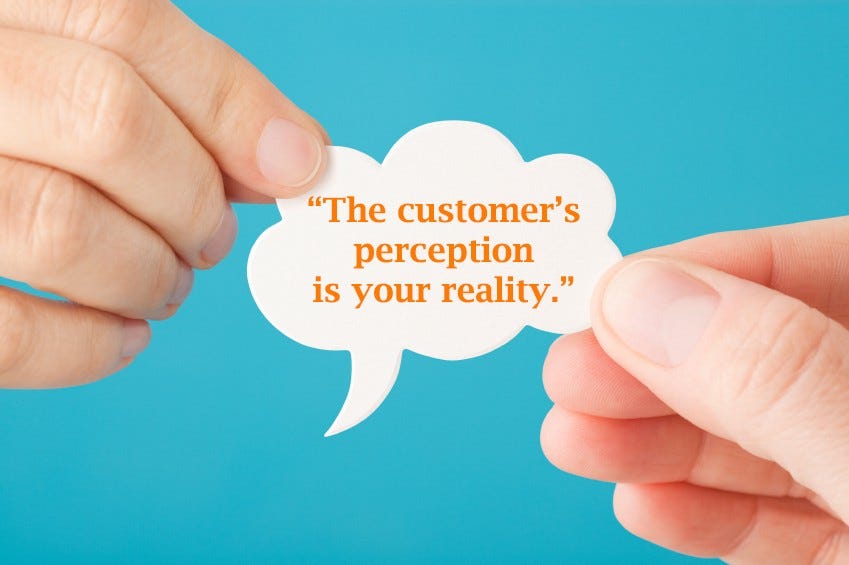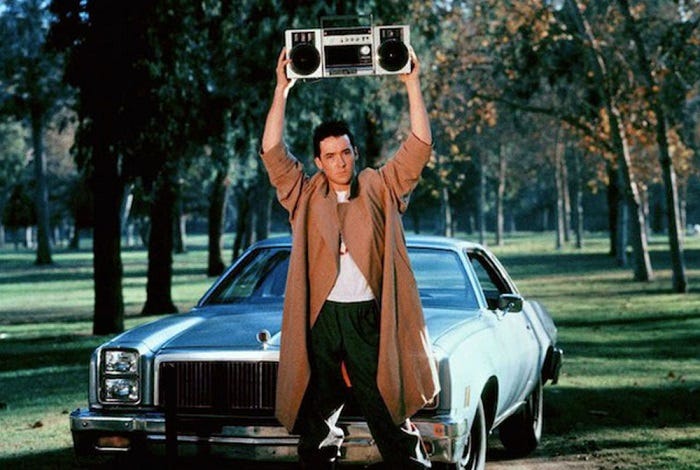RIP Mr. Big!
But Wait Just a Minute...
This week’s edition is coming out a little earlier than the regularly-scheduled 2:00 AM Wednesday morning release time. The reason is that I had planned to write up the interesting (or strange…take your pick) story on a pop culture incident featuring Peloton. Then, late Sunday afternoon, the story took another turn. Given that, I thought I’d get this out there before a Peloton bike shows up on Jimmy Fallon to discuss how people are overlooking its acting chops.
Peloton Killed Mr. Big!
It wasn’t enough that the Crock-Pot killed Jack in “This is Us”, now a Peloton bike took out Mr. Big in the Sex and the City reboot. The appliances are loose and they are taking out our favorite TV characters (okay, Jack Pearson deserves some recognition as a beloved character…but I’m not quite ready to hand that same consideration to Mr. Big). With all kidding aside, the day the Sex and the City episode came out Peloton’s stock dropped from $45.91 on Wednesday’s close to $40.70 on Thursday’s close — a loss of 11.3%. Or in dollar terms — about $1.5 billion dollars in market capitalization! What is going on here?
It could be purely coincidence (we have a tendency to try to overfit cause and effect which is referred to as the narrative bias. Things sound more plausible when we have a narrative to tie them together into a reasonable story, however often the real story is more complex than our brains are comfortable processing (which may appear as just randomness).
However, it should be noted the Peloton’s PR team was on high alert Thursday to explain that while Mr. Big died from riding his Peloton, the Peloton workouts may have actually bought him more time.
Reached for comment by EW on Thursday, the company provided a statement from Dr. Suzanne Steinbaum, a preventative cardiologist and member of Peloton's Health & Wellness Advisory Council.
"I'm sure SATC fans, like me, are saddened by the news that Mr. Big dies of a heart attack," the statement said. "Mr. Big lived what many would call an extravagant lifestyle — including cocktails, cigars, and big steaks — and was at serious risk as he had a previous cardiac event in season 6. These lifestyle choices and perhaps even his family history, which often is a significant factor, were the likely cause of his death. Riding his Peloton Bike may have even helped delay his cardiac event."
It is important to understand how important our mental images of products are to the success of those products. Developing a brand is essential in many areas of business. People don’t buy Coca-Cola over Pepsi just because they prefer the flavor (although that may be a part of it). A large part of Coca-Cola’s value (derived from how customers’ perception of Coca-Cola allows them to generate extra cash flows) comes from it’s brand.
For perspective, the total market capitalization of Coca-Cola is $240 billion, so their brand value accounts for about 1/3 of the overall value.
Peloton is sometimes ridiculed as a bike with an iPad. Peloton instead sees itself as using technology and social connection to bring the gym to your home, going beyond the bike to offer a full fitness solution.
Peloton uses technology and design to connect the world through fitness, empowering people to be the best version of themselves anywhere, anytime.
The reality is probably somewhere between these two extremes, but we need to remember the straw lessons from Jake Taylor’s “The Rebel Allocator”
Brand power comes from providing customers with value that exceeds the price they are paying. Visions of TV characters dying from using their products (well, I suppose if they were unliked characters the story might be different) does not enhance value and thus weakens brand. It may seem silly as we know that it’s a fictional show. However, in a world in which NFTs, DAOs, and other digital assets are becoming mainstream, it may be less silly than first glance. It may also be an opportunity for investors who believe in Peloton’s long-term future.
Peloton Fires Back
I had finished writing the above on Sunday morning. Then, Sunday night I saw this on CNBC’s web site. Peloton wasn’t satisfied with the PR response directly following the Sex and the City episode. So, they hired Ryan Reynolds to narrate and Chris Noth (aka “Mr. Big”) to try to respond to the publicity with some judo reverse-momentum strategy and released this ad on Sunday afternoon.
The question now becomes whether this was a pull out all the stops damage control response or, instead a well-crafted product placement ad designed to generate publicity? I’m not in the Peloton boardroom, so can’t offer any real insight on whether it was all a work or the PR team working some major overtime to try to put the best possible spin on the situation. According to the CNBC article discussing the Twitter-posted ad,
The whole thing came together in under 48 hours and was filmed in New York City, according to a Peloton spokesperson.
Either way, I think we’ve established that brand is an essential part of a company’s valuation and we can see the lengths companies will go to in order to protect the value created by their brands.
Noodling on Core Identity Thought
If you’ve read for awhile, you know that I’m a fan of Liberty’s Highlights. A couple of issues ago (Issue 209 to be exact), he brought up a thought that I’ve been bouncing around in my head off-and-on since and thought I’d comment on it — Don’t make the things you like part of your core identity.
They can still be important, they can still be a big part of your life, but they should be outside the core, and you should be able to change these things or replace them without a major crisis.
…
And if a thing starts to suck for some reason (maybe it got worse over time, or you changed and don’t get as much joy out of it as you used to, or it was always toxic but it took you some growing up to realize it), then you can hopefully have enough objectivity to realize it and jettison it without an identity crisis, or worse, without lying to yourself about it for a long time to protect your ego.
This is great advice as we change and evolve over time. I think back to when I was in graduate school (just a few decades ago) when I collected comic books and sports cards. Now they sit in a closet and collect dust. I’m sure we all have things that we were pretty passionate about which no longer interest us. Being able to dive into a hobby and then change gears to something entirely different without getting weighed down by something you don’t really enjoy any more sounds like a win. It also can help keep us from going down tribal rabbit holes which seems to be a common problem (please, can we kill the use of HODL already? Please?)
So what should be at the core? I’m thinking things like integrity, critical thinking, compassion, curiosity, kindness, humility, etc. Essentially, characteristics you’d like to see in your children or others that a large cross-section of society would agree upon.1
The only categories that matter are: Stuff you like and stuff you don’t like.
In practice, there’s only two kinds of music/films/etc: Good & bad (to you, subjectively). No need to worry about ‘it is cool? does it signal that I’m part of sub-group XYZ?’ etc.
Again, this sounds right. If I enjoy Nickelback, square dancing, and McRibs, it doesn’t matter if they are cool or not (and for the record, the onions on the McRib are NOT cool because onions are never cool!). I’m not trying to fit into a specific in-group, and hopefully neither are you. Although, there may be more to it than stuff you like and stuff you don’t like when we get to society impacts. I may enjoy a nice, relaxing Pantera song. However, I probably shouldn’t be listening to it at full volume in the middle of a poetry reading.2
This goes back to what was implied by Liberty with the things that should be at our core.
Stop caring what other people think of you (except for a select group of trusted people who really know you).
The above is the part that I think is essential to the concept — and critical to its effectiveness. While I’m in favor of the “you do you and don’t worry about whether people think it’s cool” concept, I think that one either needs a very strong sense of self or a group of people who you can trust to say “Dude, get your crap together” when necessary. Preferably both. Plus, you need to have enough humility to actually listen to those people. Unfortunately, I’m not sure how well we are in this situation. I alluded to this in last week’s post with the concept that we really don’t “KNOW” most of the people we know. Instead, we know the image of themselves which they present to us…and that may be different than the image which they present to others.
Let me share an example. I may not “enjoy” exercising and eating well. However, I know that they are important to me, so I need to try to find ways to incorporate these into my life. How I do that is less essential. But if I want a better chance at being able to stay active as I age and have the mental health to enjoy life into my 70s and beyond, I need to find strategies to help me reach those goals. Often there are things I don’t WANT to do, but I NEED to do. Peer pressure, appropriately applied, can be a tool to help accomplish these things.
Or maybe I’m overthinking this and it just means that we need to be more open to people thinking about our character rather than our hobbies/activities when they think of us. Again, still thinking about this one.
A Little Humor to Close Out the Week
Shocking to hear this, but apparently rentahitman.com is not a legitimate website. However, it is sometimes effective in finding people who think to themselves “You know what, I could really use the services of a hitman right about now.” Apparently the sites creator/owner set it up trying to start an internet security business which never took off. Surprisingly, he ended up receiving some emails from people who wanted to hire an actual hitman. In 2010, he was contacted by someone serious enough that he contacted authorities and had them take action. He then upped the gimmick to include the HIPPA information (HIPPA naturally being Hitman Information Privacy and Protection Act). Yes, there are people out there who do fall into the trap. And no, that is NOT an article from The Onion. The world is a strange place sometimes. 🤣🤣
Having these as targets for our core does not imply that we are all successful in achieving these goals to the extent we’d like.
These are all hypothetical examples. My top three Spotify songs for 2021 were “The Sound of Silence” by Disturbed, “If We Were Vampires” by Jason Isbell and the 400 Unit, and “Is That Alright?” by Lady Gaga. Not a Nickelback sighting to be found. 🎼😀








